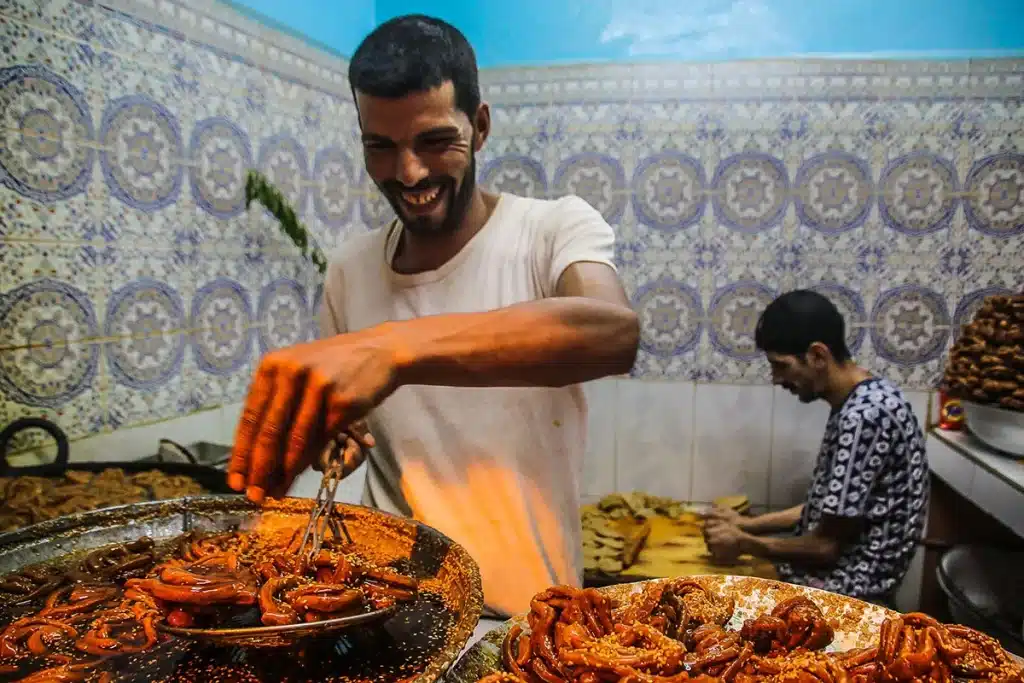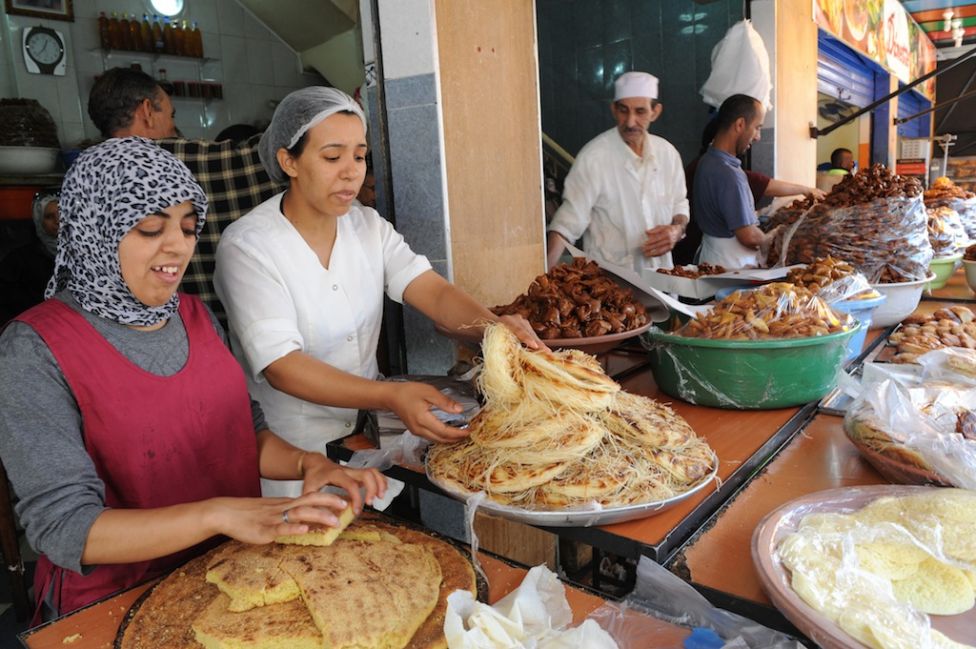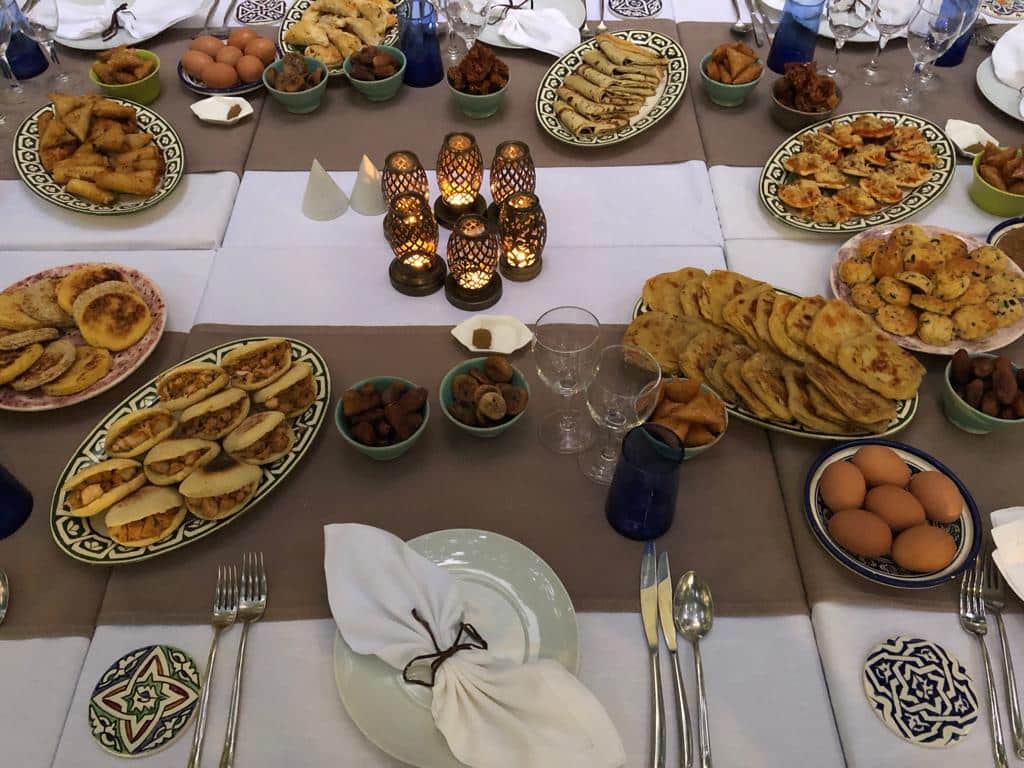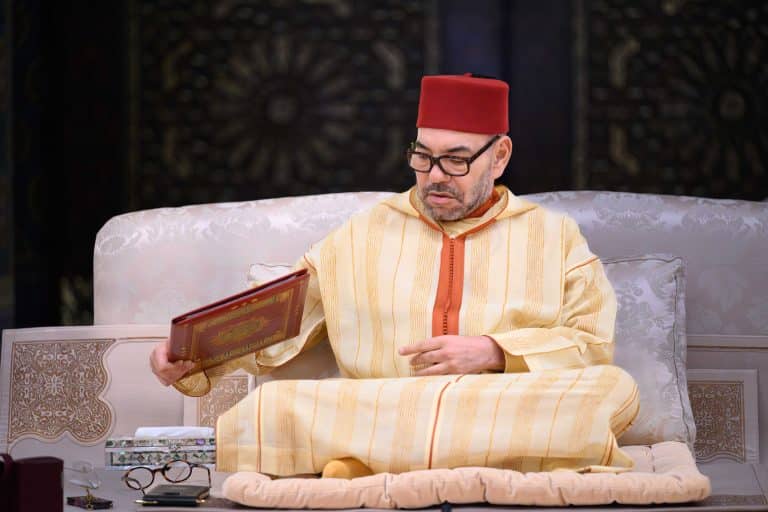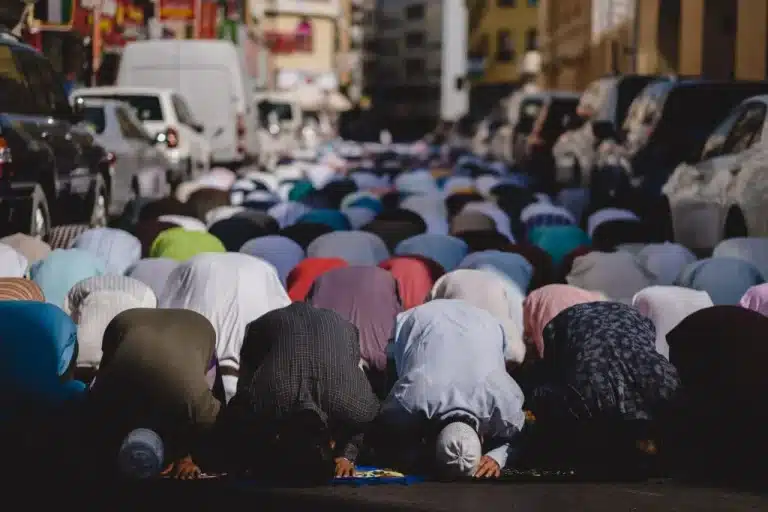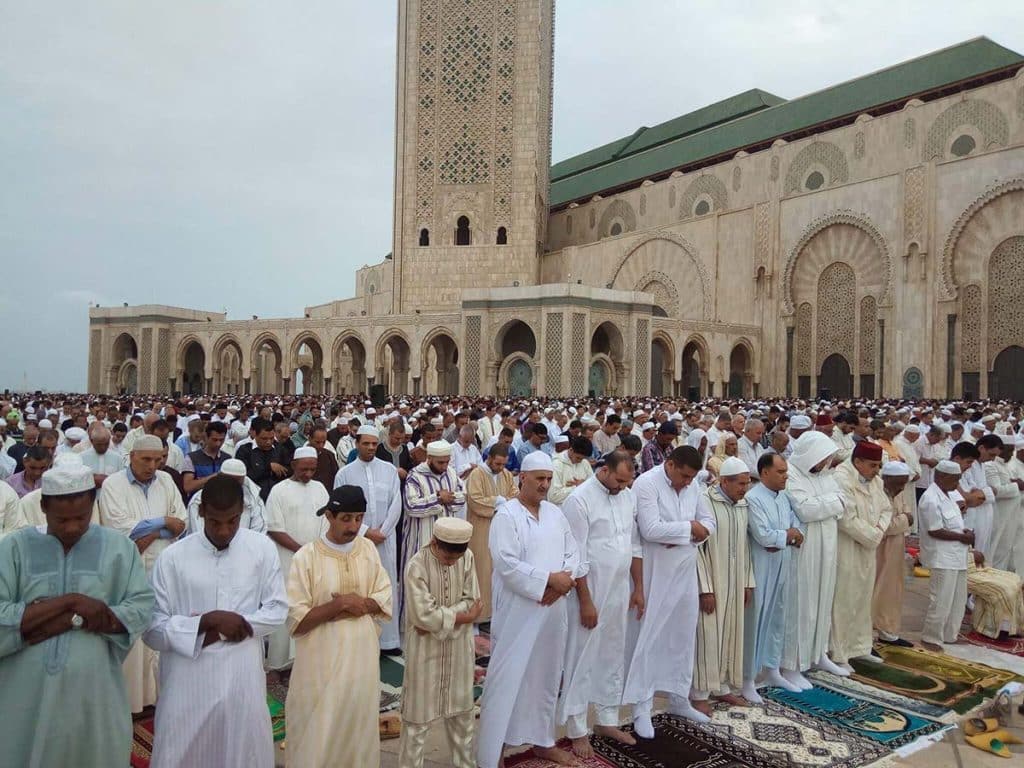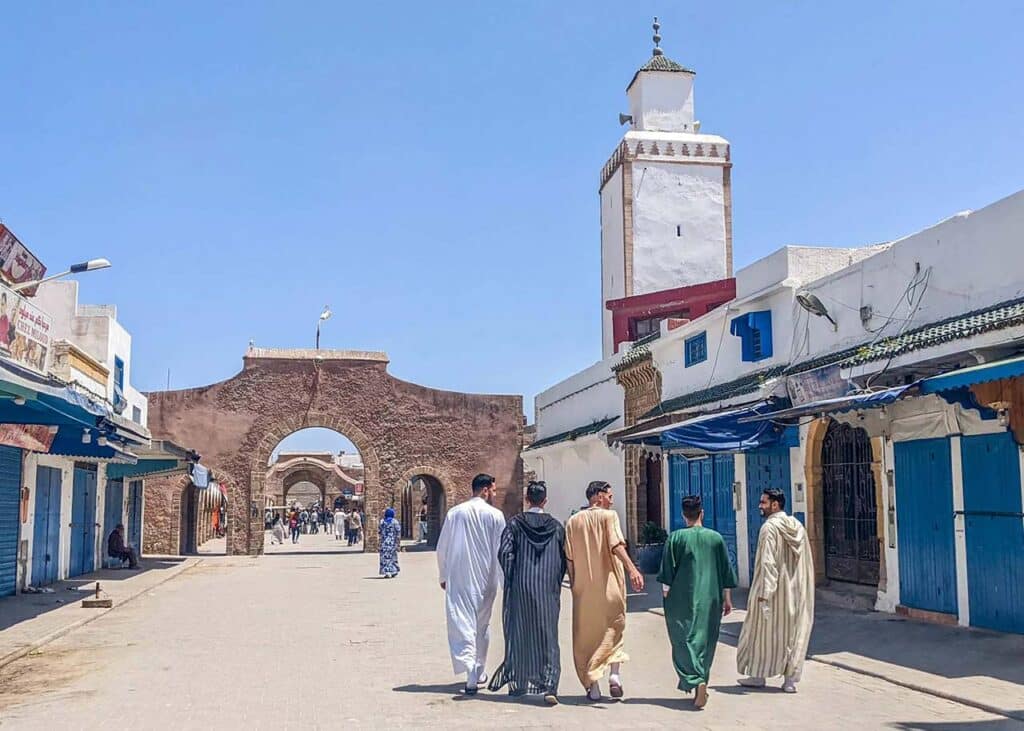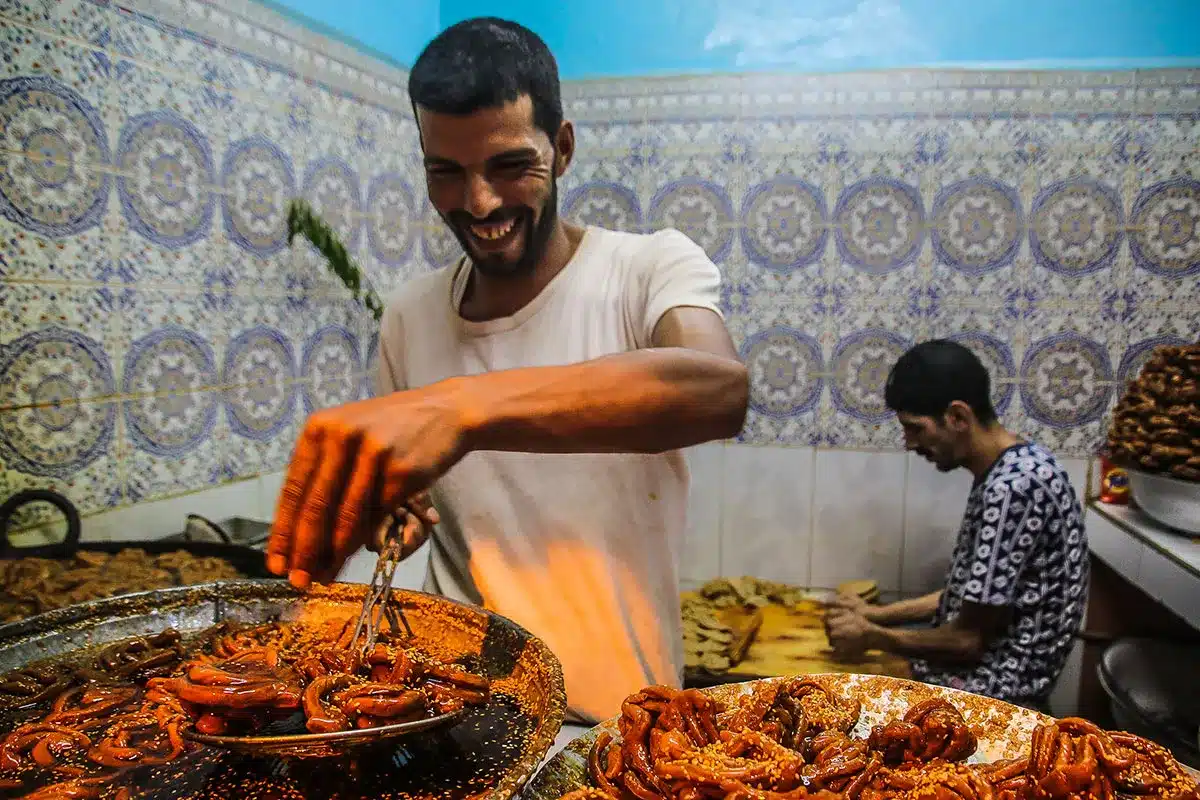Special Foods and Drinks
Ramadan in Morocco is incomplete without traditional dishes that are mostly enjoyed during this month:
Harira: A hearty tomato-based soup with lentils and chickpeas.
Chebakia: Deep-fried sesame pastries soaked in honey.
Sellou: A nutrient-rich mix of almonds, sesame, and flour.
Dates and Milk: The classic way to break the fast.
Fresh Juices: Orange juice, avocado smoothies, and fruit blends.
Zakat and Acts of Charity
Zakat al-Fitr: A charitable donation given before Eid to help the less fortunate.
Many people prepare meals for the homeless and invite them for iftar.
The Nafar: The Ramadan DrummerA centuries-old tradition, the Nafar roams neighborhoods before dawn, calling people to wake up for Suhoor.
Street Atmosphere & Markets
Bazaars and markets stay open late, selling festive decorations, traditional clothes, and Ramadan treats.
Henna artists, street musicians, and vendors create an electric nighttime atmosphere.

